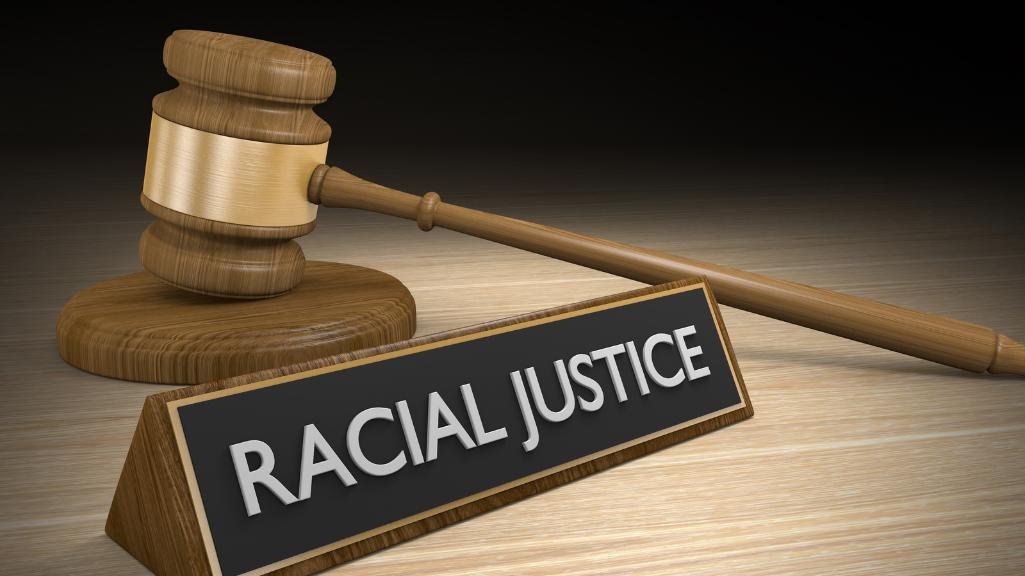Racial Justice and Inclusivity: Promoting Equality in Society
Adina Anderson
. 2 min read
Racial justice and inclusivity are fundamental pillars in building a fair and equitable society. Addressing systemic racism and fostering an environment of acceptance and belonging is essential for promoting social equality. This article explores the challenges faced by marginalized communities, highlights the significance of racial justice, and delves into the transformative power of inclusivity in creating a more just and harmonious world for everyone. Embracing innovative communication tools, such as cam chat, can further facilitate open dialogues and understanding among diverse individuals, fostering a sense of unity and mutual respect in the journey towards social equality.

The Challenges Faced by Marginalized Communities
Understanding Systemic Racism:
This section delves into the concept of systemic racism and its historical roots. It examines how societal structures and institutions have perpetuated racial disparities, limiting opportunities for certain groups. By understanding the deep-seated issues, readers can grasp the urgency of promoting racial justice.
The Role of Education in Combating Prejudice:
Education plays a vital role in challenging stereotypes and promoting empathy. This part of the article emphasizes the importance of inclusivity in educational settings, discussing how curricula can be designed to celebrate diversity and foster understanding among students from different backgrounds.
Promoting Diversity in the Workplace:
Inclusivity extends to the professional realm, and workplaces have a critical role in promoting equality. This section explores strategies for creating diverse and inclusive work environments, where individuals of all racial and ethnic backgrounds can thrive and contribute to their full potential.
Allyship and Advocacy:
This part highlights the significance of allyship, where individuals from privileged backgrounds actively support and stand with marginalized communities. It emphasizes the importance of advocacy in challenging racial injustice and promoting inclusivity at both individual and collective levels.
Breaking Down Barriers to Equal Opportunities:
The article discusses the barriers that hinder equal opportunities for marginalized communities. It delves into topics such as access to quality healthcare, housing, and education, and how addressing these disparities can level the playing field and promote racial justice.
Empowering Voices of Underrepresented Communities:
This section celebrates the power of amplifying the voices of underrepresented communities. It showcases the impact of grassroots movements and initiatives led by individuals and organizations striving for racial justice and inclusivity.
Intersectionality: Embracing Diversity Within Diversity:
This part explores the concept of intersectionality, which recognizes that individuals can experience multiple layers of discrimination based on various aspects of their identity. It emphasizes the need to understand and address these overlapping challenges to ensure inclusivity for all.
Conclusion
The conclusion summarizes the key points of the article, emphasizing that racial justice and inclusivity are collective responsibilities that require continuous efforts from individuals, communities, and institutions. By promoting equality and embracing diversity, we can create a society where everyone is treated with respect and dignity, regardless of their race, ethnicity, or background. The path to a more just and inclusive society starts with acknowledging past injustices, listening to marginalized voices, and taking meaningful action to build a better future for all.
More Stories from
Exploring the Uncharted: Speculative Insights into the World Beyond 2021
This article provides a brief overview of potential geopolitical shifts, technological advancements, environmental concerns, health challenges, economic developments.
Fighting Fake News: Strategies for Navigating a Misinformation-Flooded World
Navigate the information landscape with confidence in the face of misinformation. Learn effective strategies to identify, verify, and combat fake news in today's digital world.
The Enchanting Rhododendron: Himachal Pradesh's State Flower
Discover the captivating Rhododendron, the state flower of Himachal Pradesh, India. This vibrant evergreen shrub, native to the Himalayas, paints the landscape with breathtaking colors each spring.
Masroor Rock Cut Temple in Kangra, Himachal Pradesh: A Marvel of Ancient Architecture
Discover the fascinating world of the Masroor Rock Cut Temple, an architectural gem carved into the sandstone cliffs of Kangra, Himachal Pradesh.
Culinary Adventures: Exploring the World's Unique Food Cultures
From vibrant street food delights to treasured family recipes passed down through generations, discover the rich tapestry of global gastronomy.











.png?width=40&aspect_ratio=1:1)

.png?width=40&aspect_ratio=1:1)